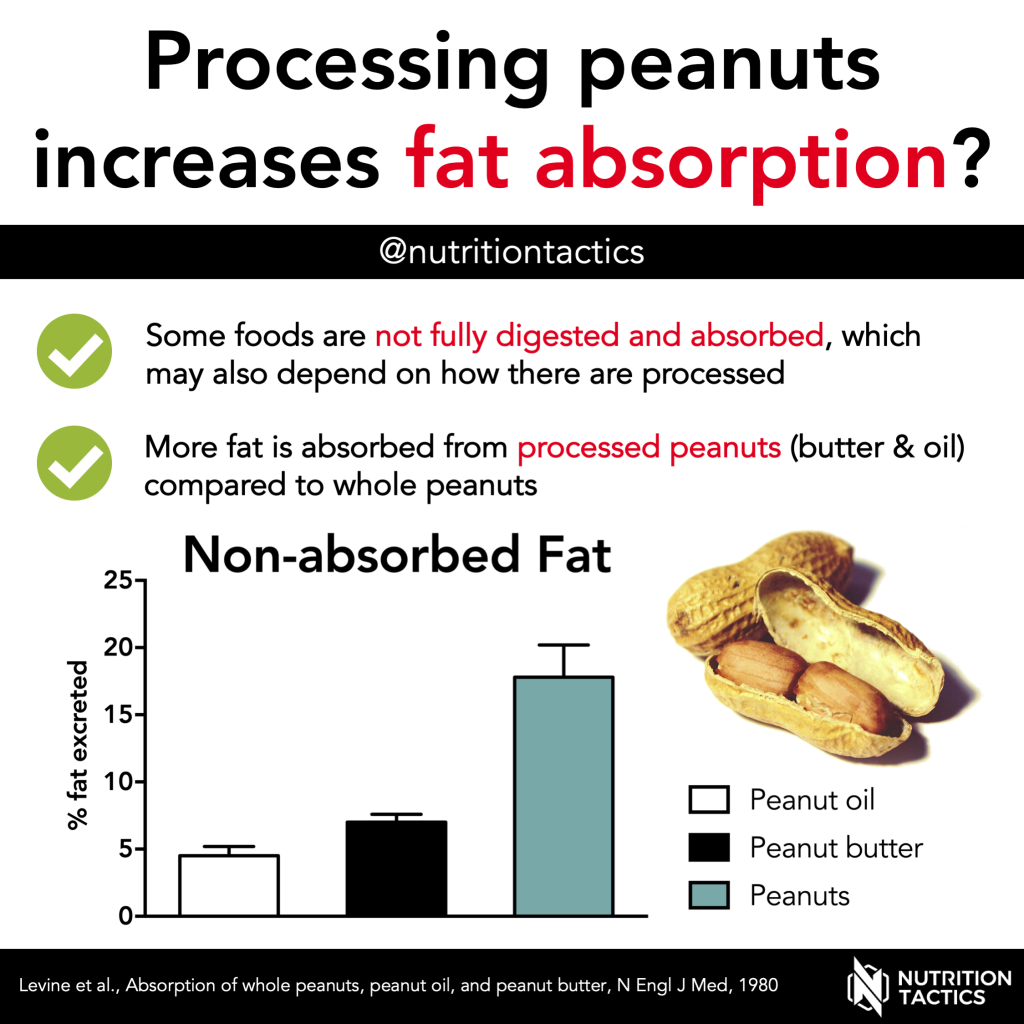How does the processing of peanuts affect fat absorption?
Some foods, such as peanuts, are difficult to fully digest. Therefore, not all their nutrients get absorbed. However, what if the peanuts are processed?
This study investigated the amount of fat that was not absorbed after the ingestion of 76 g fat provided as whole peanuts, peanut butter, or peanut oil. Stool was collected to measure the amount of fat that was not absorbed.
For whole peanuts, 18% of the fat not absorbed, while this was only 7% for peanut butter and 5% for peanut oil. This translates to a difference of 91 calories between whole peanuts and peanut oil.
It should be noted that you have to eat a relatively large amount of whole peanuts (153 g) to equal the 76 g of fat used in this study. However, the same concept might also apply to other foods that are difficult to digest. The effect of non-absorption on the total diet is not clear but likely relatively low. Still, it’s good to be at least aware of this concept.
In conclusion, less fat is absorbed from whole peanuts compared to peanut butter or peanut oil. Therefore, it seems that food processing can influence how much of certain foods is effectively digested and absorbed.
Study:
Levine et al, Absorption of Whole Peanuts, Peanut Oil, and Peanut Butter. N Engl J Med, 1980
Go to the next study in the fat series:
Fish oil improves body composition?


Leave a Reply